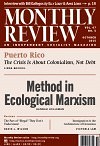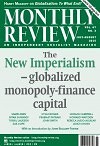Movements
The Need to Abolish Prisons
Maya Schenwar, Locked Down, Locked Out (San Francisco: Barrett-Koehler Publishers, 2014), 228 pages, $18.95, softcover.
Prison justice issues are garnering more public exposure today than ever before. In June 2012, the United States Senate held its first hearing on solitary confinement, the second in February 2014. This past fall, the New York Times ran a series of prominent exposés on conditions on Rikers Island that resulted in substantive shifts in staffing and conditions. Even the immense success of the TV show Orange Is the New Black suggests that what happens to people locked up is no longer a fringe issue, but part of our public consciousness.… Yet there are so many contradictions bound up in the way we talk about prisons. Solitary confinement is torture for children, but not for terrorists; the death penalty is unjust, but locking people up for life is not; “inmates” are terrifying beings, except the ones who look or speak like us. Therefore, for many progressives, the question is not whether prisons “work”—but how to make them more humane for those who “deserve” time on the inside. | more…
The Violent Story of Slavery and the Beginning of American Capitalism
Edward E. Baptist, The Half Has Never Been Told: Slavery and the Making of American Capitalism (New York: Basic Books, 2014), 528 pages, $35, hardcover.
For an estimated hundreds of thousands of people, including some 60,000 workers who had served notice to their bosses, April 15, 2015, was strike day—reportedly the largest mobilization of low-wage workers since May Day of 1886, when a half million workers and their families (10 percent of the population at the time) struck for the eight-hour work day. Hundreds of us from here in Tennessee joined fast food workers, adjuncts, and home and child-care workers in the morning for strike actions, and many of us boarded buses to St. Louis and Ferguson, Missouri, for a Black Lives Matter protest that brought together strikers and supporters from all across the region. It was an intense and exact showcase of the irrevocable knot of violent and permanent racism in this country, and its broadening (and racialized) wealth and income gap and the deepening, permanent poverty of working-class life.… There is no legitimate history of this nation’s past and present that can deny the twin realities of extreme economic exploitation of people of color, especially African Americans, and the incredible violence perpetrated against them. Edward Baptist’s The Half Has Never Been Told draws these two realities together in his contribution to the new set of histories of U.S. capitalism, slavery, and cotton, which include Sven Beckert’s Empire of Cotton and Walter Johnson’s River of Dark Dreams. | more…

Fifty years ago this month, beginning in early October 1965 and extending for months afterwards, the United States helped engineer a violent end to the Communist Party of Indonesia (PKI). Between 500,000 and a million Indonesians were killed by conservative factions of the military led by General Suharto and by right-wing Muslim youth—all with the direct involvement of the CIA, the close cooperation of the U.S. Embassy and State Department, and the guidance of the Johnson administration’s National Security Council.… In forthcoming issues of Monthly Review we are planning to publish work on the Indonesian genocide, which, alongside the Vietnam War, constitutes a major turning point in the history of Southeast Asia in the period, and one of the most brutal acts of mass carnage inflicted by imperialism in the twentieth century. The dire implications of this carry down to the present day. | more…
As we veteran activists of the 1960s and early ’70s enter our años del retiro, it is time for reflection, summation, and most importantly sharing what we have learned with those reaching to grab the baton. Many of us, now grandparents, are getting questions from our grandkids and kids about our lives in the “golden age” of U.S. social movements. … Bill Gallegos has been an activist since the 1960s, when he became involved in Crusade for Justice, a revolutionary Chicano nationalist organization. He has since emerged as a leading socialist environmental justice activist, and is the former executive director of Communities for a Better Environment. | more…
The Struggle for Public Water in Italy
Against the background of global and Eurozone financial crises, as well as the austerity sweeping across Europe, the pressure for governments to privatize public services is immense. Efforts to combat this are ever more necessary. This article examines one such effort, the Italian Water Movements Forum (also called just “the Forum”), a broad alliance of trade unions, social movements, development NGOs and environmental groups, and its successful 2011 mobilization supporting a referendum against water privatization. The article seeks to answer two questions. First, how was the Forum able to bring together such a wide range of different groups into a successful campaign? Second, why, despite the overwhelming success in the referendum, was there only a partial implementation of the results? | more…
Exploring the Architecture of Detention
tings chak, Undocumented: The Architecture of Migrant Detention (Montreal: Architecture Observer, 2014), 112 pages, 22 euros ($30.60 from Amazon), paperback.
Over the past six years, more than 100,000 people, including children, have been jailed in Canada, many without charge, trial, or an end in sight, merely for being undocumented.… Locked away from the public eye, they become invisible.… Like the people within, immigrant detention centers are often invisible as well. Photos and drawings of these places are rarely public; access is even more limited. Canada has three designated immigrant prisons, and it also rents beds in government-run prisons to house over one-third of its detainees.… Undocumented: The Architecture of Migrant Detention begins to strip away at this invisibility. In graphic novel form, Toronto-based multidisciplinary artist tings chak draws the physical spaces of buildings in which immigrant detainees spend months, if not years. In crisp black and white lines, chak walks the reader through the journey of each of these 100,000+ people when they first enter an immigrant detention center. | more…

In early 1917, as Britain was bogged down in a war it feared would never end, Alice Wheeldon, her two daughters, and her son were brought to trial and imprisoned for plotting the assassination of Prime Minister Lloyd George, who they believed had betrayed the suffrage movement. In this highly evocative and haunting play, British historian and feminist Sheila Rowbotham illuminates the lives and struggles of those who opposed the war. The Wheeldons’ controversial trial became something of a cause célèbre—a show trial at the height of the First World War—based on fabricated evidence from a criminally insane fantasist, “Alex Gordon,” who was working for an undercover intelligence agency. It was a travesty of justice. Friends of Alice Wheeldon is combined here with Rowbotham’s extended essay, “Rebel Networks in the First World War,” that gives a historical overview of the political and social forces that converged upon the Wheeldon family and friends. | more…
The Council on Foreign Relations Proposes a New Grand Strategy Towards China
The Council on Foreign Relations (CFR) is the think tank of monopoly-finance capital, Wall Street’s think tank. It is also a membership organization: the ultimate networking, socializing, strategic-planning, and consensus-forming institution of the dominant sector of the U.S. capitalist class.… It is the world’s most powerful private organization, the “high command” body of the U.S. plutocracy. The Council has an almost century-long history of forming study groups to plan the United States’ overall “grand” strategic policies. It sets the agenda for debate, builds consensus among both the powerful and attentive publics, and then inserts its own network of people into public office to implement its favored doctrines in the real world. One of its latest efforts, a study group on U.S. grand strategy toward China, completed its work and issued a report in March 2015—approved by the CFR board of directors—entitled Revising U.S. Grand Strategy Toward China. | more…
A Twenty-First Century Perspective
The allegedly less and less power of nation-states is a great exaggeration, voiced by governments in the interest of justifying their failure to introduce even some of their thoroughly limited and once solemnly promised social reforms.… The overwhelming historical failure of capital was—and remains—its inability to constitute the state of the capital system as a whole, while irresistibly asserting the imperatives of its system as the material structural determination of societal reproduction on a global scale. This is a massive contradiction. Inter-state antagonisms on a potentially all-destructive scale—as presaged last century by two world wars still without the now fully developed weapons of total self-destruction—are the necessary consequence of that contradiction. Accordingly, the state that we must conquer in the interest of humanity’s survival is the state as we know it, namely the state in general in its existing reality, as articulated in the course of history, and capable of asserting itself. | more…
Marge Piercy is the author of eighteen poetry books, most recently The Hunger Moon: New & Selected Poems, 1980–2010 (Knopf, 2011). Her most recent novel is Sex Wars (Harper Perennial, 2005) and she has just published her first collection of short stories, The Cost of Lunch, Etc. (PM Press, 2014). | more…
Roberta Salper, Domestic Subversive: A Feminist Take on the Left, 1960–1976 (Tucson: Anaphora Literary Press, 2014), 236 pages, $20, paperback.
Since second wave feminism is the largest social movement in the history of the United States, it is surprising that there are fewer than a dozen autobiographies written by the activists of the late 1960s and early ’70s. Roberta Salper’s Domestic Subversive is a welcome addition, especially because it is well-written, often with humor, and promises an anti-imperialist feminist analysis.… Domestic Subversive is a feminist’s take on a range of organizations of the left from 1960 to 1976: the student movement in Spain, New Left movement in the United States, Marxist-Leninist Puerto Rican Socialist Party in the United States and Puerto Rico, and a prestigious liberal think tank in Washington, D.C., the Latin American Unit of the Institute of Policy Studies (IPS), where she worked as a Resident Fellow. | more…

May’s Review of the Month, “Honor the Vietnamese, Not Those Who Killed Them” by MR Associate Editor Michael D. Yates, has elicited many responses. One writer said that Yates had written the best, but perhaps the first, Marxist analysis of the war. Another praised Monthly Review for having the courage to publish this article. Still a third predicted that in the more distant future, humanity would embrace the essay’s judgment and honor the Vietnamese people for their heroic struggle against the overwhelming might of the U.S. military.… In light of these comments, as well as the subject matter of this double issue of Monthly Review on imperialism, we thought it might be worthwhile to say something more about what the Vietnamese themselves naturally enough call the American War, with an eye toward drawing important lessons useful for contemporary radicals. | more…


